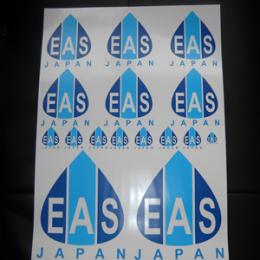Frequently asked questions by customers and the answers are given below.
We hope the following information will help customers to examine and make decisions when purchasing equipment.
■ Evaporative Type Humidifier
- Q1. What is the required water quality for evaporative type humidifier?
- A1. Tap water (Water quality should comply with the provisions of the Water Supply Act)
(pH 6.0 to 8.0, total hardness 70 mg/L or below, free Chlorine concentration 0.4 mg/L or more and 1 mg/L or less).
Water is not required to be processed for purification or softening.
- Q2. How should the evaporative type humidifier be cleaned?
- A2. When the unit is installed for the first time At the time of initial delivery and before the humid season, open the manual open and close valve of the solenoid using a flat-head screwdriver and wash with water for 1 hour or more.
- Q3. What is the efficiency of the evaporative type humidifier?
- A3. The unit can supply with a Mmaximum saturation efficiency that can be provided isof 95%.
■ Industrial Dehumidifier
- Q1. What are the applications of the industrial dehumidifier?
- A1. It can be used at places where constant temperature and constant humidity are needed, such as environmental test chambers, clean rooms, and production lines.
■ Total Heat Exchanger
- Q1. What is the efficiency of the total heat exchanger?
- A1. The heat exchange efficiency of the total heat exchanger is approximately 70% when supplied air and exhaust emission are of the same volume.
- Q2. What is the expected reductionpotential savings in electricity charges by using the total heat exchanger?
- A2. With the total heat exchanger, 70% of the exhaust heat is recovered.
For example, by supplyingif air from which heat has been recovered is supplied instead of the cold air from outside during winter, the corresponding amount of electricity required by the heater can be saved from the heat source.
If you send us the specifications, we will send you the details of the economic benefits.
- Q3. Can CO2 emissions be reduced by using the total heat exchanger?
- A3. Exhaust heat recovery of the total heat exchanger significantly reduces the CO2 emissions discharged during the generation whenof electricity is generated.
If you send us the specifications, we will send you the details of the reduction in CO2 volume.
■ Maintenance of air conditioners
- Q1. What is the maintenance frequency required for the air conditioners?
- A1. Our recommendation for maintenance of air conditioners is 1 or more times a year.
If periodic maintenance is implemented, sudden stoppages will not lead to defects of the unit and service life of individual parts can also be extended.




